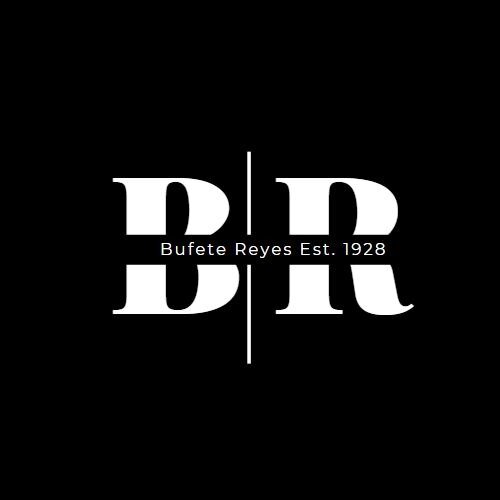Best Inheritance Law Lawyers in Honduras
Share your needs with us, get contacted by law firms.
Free. Takes 2 min.
Or refine your search by selecting a city:
List of the best lawyers in Honduras
1. About Inheritance Law in Honduras
Inheritance law in Honduras governs how a deceased person’s estate is distributed. It covers both intestate succession (when there is no will) and testamentary succession (when a valid will exists). The framework blends the Constitution, the Civil Code, and notarial procedures to protect heirs and manage debts. A key feature is the protection of legítima, ensuring certain heirs receive a minimum share regardless of the will’s terms.
In Honduras, probate and succession matters are handled by the judiciary and require proper documentation to transfer real estate, bank accounts, and other assets. The process can involve multiple steps, including verifying the will, identifying heirs, paying debts, and registering property transfers. Clear records and formal notarization help prevent later challenges to the estate.
Understanding who can be an heir, what portion they receive, and how to navigate court procedures is essential for families dealing with loss, especially when assets span different jurisdictions or when heirs disagree. This guide outlines practical reasons to seek legal help and points to official sources for Honduran inheritance law.
Source: Poder Judicial de Honduras - overview of probate and succession procedures in Honduras.
2. Why You May Need a Lawyer
Hiring a lawyer with experience in inheritance matters can prevent costly delays and disputes. The following real-world scenarios in Honduras illustrate when legal counsel is valuable.
- Opening a probate for a multi-property estate. A death with land in urban and rural areas requires court filings, title verification, and multiple registries. A lawyer coordinates heirs, debts, and property transfers to avoid title conflicts.
- Challenging or defending a will. If a will excludes a rightful heir or claims someone cannot inherit due to age or capacity, a lawyer can file a contest, interpret heirs' legitimidad rights, and represent you in court.
- Resolving debts before distribution. The estate must settle debts and taxes before asset division. A legal professional helps prioritize creditors and negotiate settlement plans with lenders and the Public Ministry where applicable.
- Handling assets abroad or foreign wills. When heirs or assets are located outside Honduras, a lawyer guides recognition of foreign wills and cross-border probate issues to ensure lawful transfer of assets.
- Protecting the rights of minor or incapacitated heirs. If a guardian or curador is needed for minor beneficiaries, a lawyer ensures proper guardianship procedures and timely distributions to protect wards’ interests.
- Addressing disputes among heirs. Family disagreements about shares, asset types, or used properties often require mediation and, if needed, formal dispute resolution in court.
3. Local Laws Overview
Honduras uses a civil law framework where inheritance is principally governed by the Constitution, the Civil Code, and notarial regulations. The following laws and regulations are central to succession matters in Honduras.
- Código Civil de Honduras - Contains core rules on intestate and testamentary succession, legítima protections, and procedures for transferring property after death. It forms the practical roadmap for how estates are divided among heirs and how the lawful portions are allocated.
- Constitución de la República de Honduras - Establishes fundamental rights of family members and heirs, and provides the constitutional basis for protections afforded to spouses and children in inheritance matters. Constitutional provisions guide how heirs are treated and how basic family rights are protected.
- Ley del Notariado - Regulates notarial acts essential to inheritance, including the formalization of testaments and the authentication of documents used to transfer estate assets. Modernization efforts in notarial procedures aim to streamline probate in major cities.
Recent developments in Honduran probate practices focus on improving efficiency in court filings and notarial processes, including attempts to digitize some steps for faster handling of estates. These changes are part of ongoing efforts to reduce delays in succession cases.
Source: Poder Judicial de Honduras and Asamblea Legislativa de Honduras - references to succession, notarial requirements, and civil code provisions.
4. Frequently Asked Questions
What is intestate succession in Honduras?
Intestate succession occurs when someone dies without leaving a valid will. The heirs are determined by the Civil Code in a fixed order, prioritizing spouses, children, and other close relatives.
How do I start a probate in Honduras?
To begin, you file a petition in the appropriate court, attach death certificates, heir documents, asset inventories, and debt information. A lawyer guides you through filing and notification to interested parties.
What is a will and how is it validated in Honduras?
A will is a testamentary document detailing asset distribution. It must meet formal requirements in the Ley del Notariado and Civil Code, be notarized or executed with valid witnesses, and be admitted to probate by the court.
Do I need a lawyer to handle an inheritance case?
While not strictly required, a lawyer helps ensure correct documentation, reduces delays, and protects your legal rights, especially in complex estates or contested inheritances.
How long does a typical succession take in Honduras?
Simple cases with clear assets may take several months, while complex estates involving multiple properties or foreign assets can last 12-24 months or more depending on disputes and court capacity.
What documents should I gather for a succession case?
Common documents include death certificate, will (if any), identification, property titles, debt statements, tax records, and a list of all heirs and their contact information.
Is a foreign will recognized in Honduras?
Foreign wills may be recognized under certain conditions, but they usually require translation, authentication, and court validation to be effective for Honduran assets.
What is the legitimate portion (legítima) in Honduras?
Legítima is a legally protected share of the estate reserved for certain heirs, such as the spouse and children, regardless of the deceased’s last wishes. The exact share is defined in the Civil Code.
Can debts affect how much heirs receive?
Yes. The estate must first satisfy debts and obligations before distributions to heirs. Creditors have a priority claim in the liquidation process.
Where are inheritance filings typically submitted in Honduras?
Filing is usually done in the court with territorial jurisdiction over the deceased's domicile or where the assets are located, with notarial acts supporting the transfer of property.
Should I consider mediation before court in an inheritance dispute?
Yes. Mediation can resolve conflicts more quickly and with lower costs than court litigation, while preserving family relationships where possible.
Do heirs pay taxes on inherited assets in Honduras?
In some cases, inherited assets may be subject to taxes or transfer duties. A lawyer can clarify applicable obligations based on the estate and asset types.
Is a public notary involved in all wills?
Not all wills require a notary, but notarial acts are common for validating testaments and ensuring proper formalities under Honduran law.
5. Additional Resources
- Poder Judicial de Honduras - Official judiciary site with guidance on probate, court forms, and courtroom procedures for succession matters. https://www.poderjudicial.gob.hn
- Asamblea Legislativa de Honduras - National legislature site hosting laws, codes, and amendments relevant to inheritance and civil law. https://www.asamblea.gob.hn
- Registro Nacional de las Personas (RNP) - Official civil status registry that can be involved in probate when proving identity and family relations. https://www.rnp.gob.hn
6. Next Steps
- Identify your goal and collect basic documents. Gather death certificates, IDs, property titles, and any will or trust documents within 1-2 weeks.
- Consult a Honduran inheritance lawyer (solicitor) to assess your position and potential strategy. Schedule initial consult within 2-3 weeks of gathering documents.
- Have the lawyer review the will and determine if a probate petition or intestate proceeding is required. Expect a 1-3 week assessment phase after consultation.
- Prepare a complete heirs and asset inventory with valuation. Do this with the lawyer to ensure accuracy for the court filing, typically within 2-4 weeks.
- File the claim with the appropriate court and coordinate notarial acts for asset transfer. Filing and initial court steps can take 4-8 weeks, depending on jurisdiction and caseload.
- Address debts and creditor claims with the estate administrator, under the lawyer guidance. Allow 2-6 months for debt resolution depending on complexity.
- Complete asset transfers and register property at the local registry once the estate is settled. Registration can take 4-12 weeks after court orders are issued.
Lawzana helps you find the best lawyers and law firms in Honduras through a curated and pre-screened list of qualified legal professionals. Our platform offers rankings and detailed profiles of attorneys and law firms, allowing you to compare based on practice areas, including Inheritance Law, experience, and client feedback.
Each profile includes a description of the firm's areas of practice, client reviews, team members and partners, year of establishment, spoken languages, office locations, contact information, social media presence, and any published articles or resources. Most firms on our platform speak English and are experienced in both local and international legal matters.
Get a quote from top-rated law firms in Honduras — quickly, securely, and without unnecessary hassle.
Disclaimer:
The information provided on this page is for general informational purposes only and does not constitute legal advice. While we strive to ensure the accuracy and relevance of the content, legal information may change over time, and interpretations of the law can vary. You should always consult with a qualified legal professional for advice specific to your situation.
We disclaim all liability for actions taken or not taken based on the content of this page. If you believe any information is incorrect or outdated, please contact us, and we will review and update it where appropriate.
Browse inheritance law law firms by city in Honduras
Refine your search by selecting a city.









